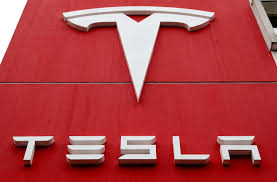
Tesla is reportedly exploring the possibility of manufacturing rooftop solar panels in India, seeking local partners for collaboration. The selected partner would assist in manufacturing and installation, while Tesla contributes technology and sales expertise. The company has communicated its plans to the government and is pursuing subsidies and grants for the venture. This initiative aligns with Prime Minister Narendra Modi’s recent announcement of the PM Surya Ghar: Muft Bijli Yojana, a scheme investing Rs 75,000 crore to provide up to 300 units of free electricity per month to 1 crore households through rooftop solar panels.
The proposal involves utilizing Tesla’s “Powerwall” system, designed for storing power from solar panels or the grid for use during outages or at night. While Tesla has discussed establishing an electric vehicle factory in India, its plans for battery storage, particularly the Powerwall system, have not gained widespread attention. In meetings with Indian officials, Tesla presented its proposal to support the country’s battery storage capabilities, but the government indicated it wouldn’t incentivize a battery storage factory. Instead, it suggested potential subsidies for consumers purchasing Tesla’s battery storage products, creating a viable business model.
Beyond electric vehicles, Tesla aims to extend its footprint in India by engaging residential and industrial customers for its battery storage systems. The company’s interest spans products such as Solar Roof, Powerwall, a battery storage unit, and solar panels. This move aligns with Tesla’s broader strategy of diversifying its offerings and tapping into various facets of sustainable energy solutions.
The Indian government’s willingness to consider subsidies for consumers aligns with a broader effort to promote renewable energy adoption. Tesla’s involvement in this initiative could contribute to India’s goals of increasing solar power generation and creating a more sustainable energy infrastructure. The government’s push for solar energy, reflected in the substantial investment in the PM Surya Ghar scheme, demonstrates a commitment to expanding access to clean and affordable electricity.
Tesla’s plans to manufacture solar panels in India could have ripple effects, not only in the renewable energy sector but also in job creation and technology transfer. The collaboration with local partners emphasizes the company’s recognition of the importance of localized expertise and support for successful implementation.
As Tesla’s endeavors in India progress, it remains to be seen how the government responds to the request for subsidies and grants. The success of such initiatives could influence the trajectory of sustainable energy adoption in the country, setting the stage for increased collaboration between global players and the Indian government in achieving renewable energy goals.






